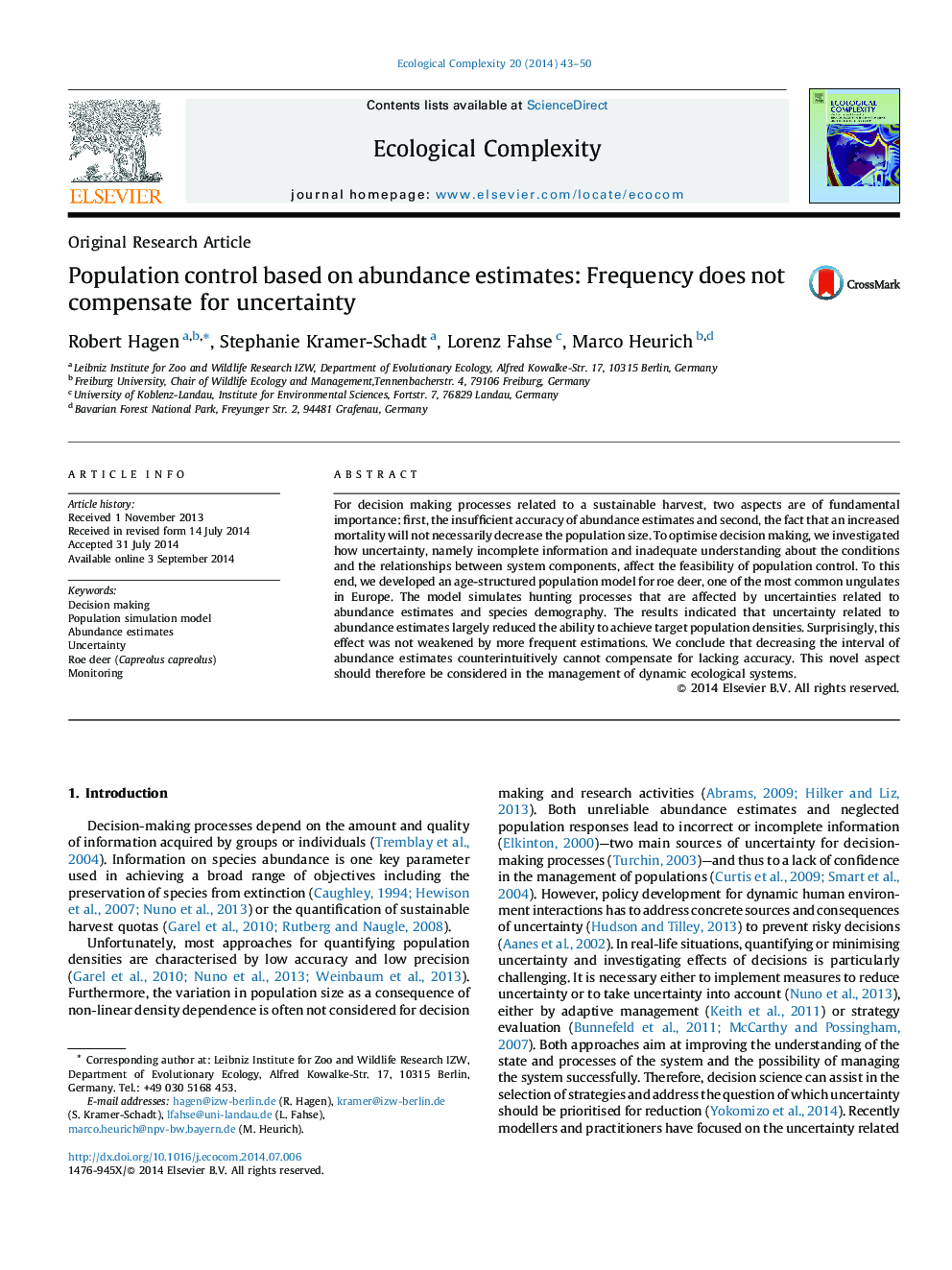| Article ID | Journal | Published Year | Pages | File Type |
|---|---|---|---|---|
| 4372355 | Ecological Complexity | 2014 | 8 Pages |
•Population control is hampered by environmental stochasticity and process uncertainty.•Uncertainty in abundance estimates cannot be compensated by more frequent estimates.•Fixed hunting quotas are less suitable for population control.
For decision making processes related to a sustainable harvest, two aspects are of fundamental importance: first, the insufficient accuracy of abundance estimates and second, the fact that an increased mortality will not necessarily decrease the population size. To optimise decision making, we investigated how uncertainty, namely incomplete information and inadequate understanding about the conditions and the relationships between system components, affect the feasibility of population control. To this end, we developed an age-structured population model for roe deer, one of the most common ungulates in Europe. The model simulates hunting processes that are affected by uncertainties related to abundance estimates and species demography. The results indicated that uncertainty related to abundance estimates largely reduced the ability to achieve target population densities. Surprisingly, this effect was not weakened by more frequent estimations. We conclude that decreasing the interval of abundance estimates counterintuitively cannot compensate for lacking accuracy. This novel aspect should therefore be considered in the management of dynamic ecological systems.
